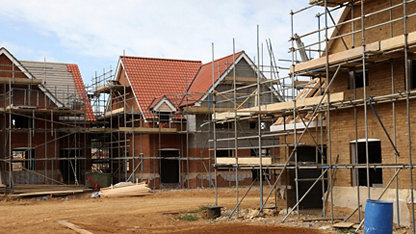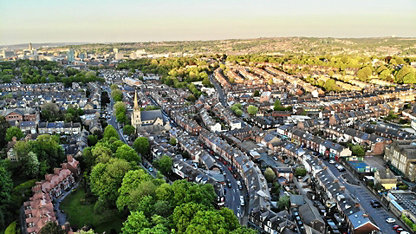In the face of the sharpest economic contraction in recent history, along with sudden sweeping changes in societal behaviour, the ongoing pandemic has already had a profound impact across the built environment. When the national lockdown was ordered, work on construction sites came to a halt, agencies were forced to close all physical branches, and swathes of office buildings were left empty as people switched to remote working. As some of the restrictions now begin to ease, it has become clear that the legacy of the health crisis will lead to some substantial longer-term changes in the way people work and how buildings operate.
To develop a clearer understanding of the future landscape, and how RICS professionals will help construction and real estate sectors adapt or respond to new challenges, the timely insights collected through our in-house suite of market surveys are more important than ever.
The view of FM professionals: A new approach to office working
The findings of our May 2020 RICS Facilities Management Survey were particularly telling. Respondents were asked for their views on the proportion of the workforce that would likely return to the workplace as before once the lockdown has been lifted. While it is early in the process of unwinding the lockdown, the largest share of contributors currently believe that less than 60% of workers will return relative to the pre-Covid norm.
Informing recommendations to revive the residential market
The usefulness of the information collected through surveys is not just limited to the practicalities of reopening buildings, however. It has also been vital to capture expectations on the potential timeline for real estate market activity to recover post-crisis, and represent the views of our profession. For instance, feedback to our RICS Residential Market Survey has provided the basis for engagement with policymakers including the Bank of England and HM Treasury, enabling us to make the case for a number of interventions to support a revival in market activity which is so critical for the wider economy. Take, for instance, Stamp Duty. An overwhelming majority of contributors believed a temporary Stamp Duty holiday would provide a much-needed boost to transactions but would not, given the present backdrop, stoke house price inflation.
Anticipating changing property demand
The survey results are already pointing to several potential structural shifts emerging in the residential market as a result of COVID-19 and subsequent lockdown. For example, those who are looking to buy a house appear to be seeking out properties with gardens or balconies and nearer green space. These are likely to increasingly command a premium over higher density urban locations, according to respondents to the survey.
“The survey results are already pointing to several potential structural shifts emerging in the residential market as a result of COVID-19 and subsequent lockdown. ”
Assessing the impact on construction and commercial activity
We are also able to shed light on ongoing issues facing commercial and construction markets in the wake of the pandemic. These results (to be released at the end of July) will enable us to investigate the proportion of construction projects that have been delayed, and how soon these are expected to resume. We are also collecting views on the extent to which productivity may be reduced as a result of new physical distancing practices on site.
Across the commercial sector, insights are being gathered on the likely attitudes of businesses towards reducing their office footprint on account of the increase in remote working, while we are also gathering expectations on whether demand will rise for suburban offices in place of urban locations. All of this will aid us in gaining insight into how the sector is likely to evolve in response to the COVID-19 outbreak.
The value of staying ahead of the curve
Ordinarily, our forward-looking survey evidence is most useful in detecting turning points in cycles, well ahead of these becoming visible in the hard data which, by its nature, tends to be backward-looking. In this instance though, the flexibility of the surveys has also shone through, allowing pertinent, reactive questions to be raised and enabling us to identify breaking trends. This insight helps RICS to be at the forefront of responding to the legacy of this crisis, as well as engaging at a high level with key policymakers and stakeholders.
About the author
Tarrant Parsons
Head of Market Analytics, RICS
Tarrant is part of the RICS Economics team having graduated with a degree in economics in 2012. Since joining RICS, Tarrant has been responsible for producing well established market surveys covering residential, commercial property and construction sectors across the world.















